Sarah Ash's Blog, page 14
May 7, 2016
Women Who Write Excellent SFF…looking forward to next week’s Nobody Knew She Was There
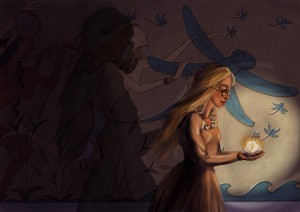
A Big Thank You to all those readers who have shared and re-tweeted the recent guest blog contributions to Nobody Knew She Was There…
My thanks to Jenny Barber for starting May off with much food for thought (and excellent reading suggestions too). Now I’m really looking forward to welcoming Kari Sperring on Monday May 9th with a thought-provoking article entitled Unreal.
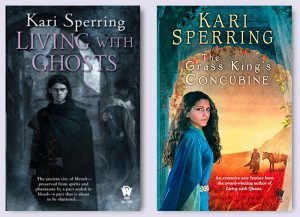
May 2, 2016
Jenny Barber on Nobody Knew She Was There
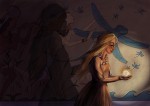
I’m delighted to introduce writer and editor Jenny Barber with some fascinating and pertinent observations on women in SFF – and a really useful list of recommendations!
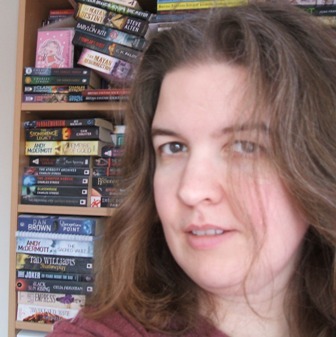
Nobody Knew She Was There: Get Shorty
When it comes to SFF and short fiction, I blame my mum entirely. She’ll tell you she’s not the biggest SFF reader, as crime is more her thing, yet she was the one with the scattered library of Tolkien and Barker and Herbert and King and yellowed collections of classic ghost stories by M R James. I devoured both the long and short fiction without prejudice, reading them over and over until books fell apart and had to be repaired with sellotape, or mum politely suggested new copies should probably be acquired. Mum was also the one who dragged me weekly to the newly built local library to max out the limit on mine, my sister’s and my mum’s library cards (I might have been a smidge opportunistic when it came to library allowances…), it was mum who bought me random comics from the portacabin that passed for the nearest newsagents, and mum who threw bookclub catalogues at me at every opportunity. The woman was, and still is, a total book enabler!
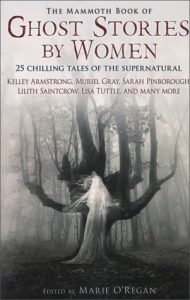 Then I discovered that anthologies were a thing that existed. Shorts by many authors! And more than just horror fiction! Get in! I’m not sure exactly what my first anthology reads were, but I’m fairly certain I started out on some of the Mike Ashley Mammoth Book of… ones. From there I discovered the mighty empire that was Ellen Datlow and Terri Windling (soooo many anthologies!), there was Esther Friesner’s Chicks anthologies, random offerings from Martin H. Greenberg, various Stephen Jones Mammoth Books, the odd Forgotten Realms anthology (not that I had any clue about the game or world, you understand, I just honed in on any cool looking fantasy anthologies that happened to be in the bookshop when I had cash to spare) and there was also the rather intriguing Essential Bordertown by Terri Windling & Delia Sherman (which, along with the discovery of Charles de Lint, also kicked off my love of urban fantasy. Which is a whole ‘nother thing.)
Then I discovered that anthologies were a thing that existed. Shorts by many authors! And more than just horror fiction! Get in! I’m not sure exactly what my first anthology reads were, but I’m fairly certain I started out on some of the Mike Ashley Mammoth Book of… ones. From there I discovered the mighty empire that was Ellen Datlow and Terri Windling (soooo many anthologies!), there was Esther Friesner’s Chicks anthologies, random offerings from Martin H. Greenberg, various Stephen Jones Mammoth Books, the odd Forgotten Realms anthology (not that I had any clue about the game or world, you understand, I just honed in on any cool looking fantasy anthologies that happened to be in the bookshop when I had cash to spare) and there was also the rather intriguing Essential Bordertown by Terri Windling & Delia Sherman (which, along with the discovery of Charles de Lint, also kicked off my love of urban fantasy. Which is a whole ‘nother thing.)
From there the BFS introduced me to the UK small press scene and the fact that people actually published magazines entirely devoted to short fiction. Who’da thunk it?! I was in short fic heaven. For the longest time I didn’t really notice which authors were in them or whose stories kept getting told. Until I did. Right around the time I started noticing who won all the awards, and who didn’t. And who made it into the Best Of anthologies, and who didn’t. And the more I noticed, the more obvious it seemed – where were the women hiding? Why were we such rare beasts as to only merit one or two stories in a 25 story anthology? Why were there Best Of books coming out with no women at all? And while some anthologies had better representation than others, the ones that made it to the shelves of our local bookshop tended to be very dude heavy. And for the most part, whomever the author, the stories tended to be about men too. As a teen girl getting into SFF, this soon became a bit off-putting.
As I got older, the difficulty in tracking down actual women authors, or stories where women were the 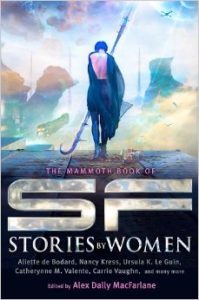 protagonists, reshaped my reading demands to the point where my enthusiasm for buying an anthology starts with whether or not there’s any women in the Table of Contents. Give me an anthology where at least half the ToC are women, and I cannot throw my money at it fast enough. Any less than three women authors in the entire book and there would have to be a really stunning reason for me to consider picking it up.
protagonists, reshaped my reading demands to the point where my enthusiasm for buying an anthology starts with whether or not there’s any women in the Table of Contents. Give me an anthology where at least half the ToC are women, and I cannot throw my money at it fast enough. Any less than three women authors in the entire book and there would have to be a really stunning reason for me to consider picking it up.
This trend follows through in other areas of genre life – I’m more inclined to go to a convention if at least half the main guests are women, as a writer I’m more likely to submit to anthologies or magazines by editors who have published a good quantity of women in their ToC, and as an editor I’m always looking for more women writers, and constantly update my list of awesome writers to invite to the next anthology project.
And while there is a lot that can be said, and has been said, about the gender balance in anthologies (like here and here for starters,) this is not that post.
This post is to celebrate short SFF fiction by women – those who write it, those who edit it, those who publish it – so you, beloved reader, know where to find it. (Warning: lists follow. They may go on a bit. Sorry. Not sorry.)
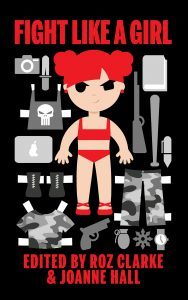 So let’s talk anthologies! Let me introduce you to:
So let’s talk anthologies! Let me introduce you to:
Fight Like A Girl (ed. Roz Clarke & Jo Hall, Kristell Ink) – women kicking ass, written by kick ass women.
Tales of Eve (ed. Mhairi Simpson, Fox Spirit Books) And I will also cheerfully recommend every Fox Spirit anthology there is, just on basic principles, because they are all fab.
Mammoth Book of Ghost Stories by Women (ed. Marie O’Regan, Constable & Robinson) – with both classic fiction and modern fiction, if horror’s your thing, look no further than this.
Mammoth Book of SF by Women (ed. Alex Dally Macfarlane, Constable & Robinson) – a wide range of crunchy SFnal offerings.
The SEA is Ours (ed. Joyce Chng & Jaymee Goh, Rosarium Publishing) If you’re into steampunk, then go no further for steampunk in Southeast Asia.
The Women Destroying Fantasy/SF/Horror anthologies (Various editors, Lightspeed/Nightmare Magazines) – because, really, you just need to read them. There’s new fic, reprint fic and non-fic to be had, and if you want to destroy the genre a bit more, check out the Queers Destroy and upcoming PoC Destroy entries in the series too!
She Walks in Shadows (ed. Silvia Moreno-Garcia & Paula R. Stiles, Innsmouth Free Press) Women doing Lovecraftian horror.
Fearful Symmetries (ed. Ellen Datlow, CZP) Horror tales from the queen of horror anthos – though really, who can pick just one Ellen Datlow? They’re all awesome.
Mermaids and Other Mysteries of the Deep (ed. Paula Guran, Prime Books) Title says it all. Also, I’m a sucker for mermaid stories. And again, Guran is another automatic editor buy.
We See a Different Frontier (ed. Fabio Fernandes and Djibril al-Ayad, Futurefire.net Publishing) Excellent postcolonial SF.
Obsidian: A Decade of Horror Stories by Women (ed. Ian Whates, NewCon Press) – this collects, you’ve guessed it, ten years worth of shorts published by NewCon Press. And if you’re hitting NewCon for reads, also take a look at Myth-Understandings.
What Fates Impose (ed. Nayad A. Monroe, Alliteration Ink) All manner of funky tales about divination.
Bloody Fabulous (ed. Ekaterina Sedia, Prime Books) Fantasy and fashion, baby!
Chicks in Chainmail (ed. Esther Friesner, Baen Books) – if you like Xena and have a sense of humour, look no further.
Glitter & Mayhem (ed. Lynne M. Thomas, Michael Damian Thomas, John Kilma, Apex Publications) – I bought this one via kickstarter and it is just as fun as it sounds!
The Apex Book of World SF series (ed. Misc, Apex Publications) – awesome SF from around the world, collect ‘em all.
The Essential Bordertown (ed. Terri Windling & Delia Sherman, Tor), because, of course. Classic urban fantasy.
![Pageflex Persona [document: PRS0000026_00024]](https://i.gr-assets.com/images/S/compressed.photo.goodreads.com/hostedimages/1462280640i/18975977.jpg)
(And I’ll get one of those looks from m’co-editor Jan Edwards if I don’t mention our own Alchemy Press Books of Ancient Wonders and Urban Mythic #1 & #2, or the Wicked Women antho. Many fabulous authors, many fabulous stories. Yes, I am without shame.)
But! Also! Single author collections are not to be missed!
I will always outrageously fangirl Angela Slatter – her Sourdough and Other Stories collection is my standout favourite thing and is full of fabulous interconnected dark fairy tales; but check out her other collections too!
Zen Cho – Spirits Abroad. If you’ve never read a Zen Cho story, then pick this up and start now.
Anne Nicholls – Music from the 5th Planet – super SF, and while I have your attention, other Alchemy Press collections not to be missed are Marion Pitman’s Music in the Bone, and Jan Edwards’ Leinster Gardens. (Yes, I’m biased here! Also still without shame!)
Amal El-Mohtar – The Honey Month – truly wonderful honey themed stories with bonus recipes.
Juliet E. McKenna – A Few Further Tales of Einarinn – fabulous epic fantasy, plus Ms McK. is a genre goddess and I’ll fight anyone who disagrees. Or hide behind Juliet while she does the fighting. J
Angela Carter – The Bloody Chamber and Other Stories – classic horror fic at its best.
Yoon Ha Lee – Conservation of Shadows – simply glorious SF
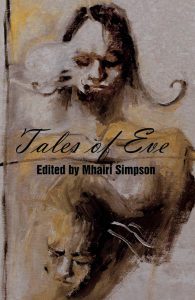
Not only that, but! Online magazines! Let me tell you how great online magazines are – full of fabulous free fiction, by all the authors, in all the genres, accessible instantly anywhere there’s an internet connection; and perfect if you’re a bit skint and need a story fix (which was a reading life saver when I was, in fact, too skint to subscribe to all the things.) If you do have the cash, many of them offer subscription options that get you extra content, advance access to stories and the ebook format of your choice, and those that don’t have subscription options do have donation buttons so you can help them keep the flow of fiction going.
Abyss and Apex, ed. Wendy S. Delmater – http://www.abyssapexzine.com/
Apex Magazine, ed. Sigrid Ellis, Jason Sizemore – http://www.apex-magazine.com/
Beneath Ceaseless Skies, ed. Scott H. Andrews – http://www.beneath-ceaseless-skies.com
Clarkesworld Magazine, ed. Neil Clarke – http://clarkesworldmagazine.com
Giganotosaurus, ed. Rashida J. Smith – http://giganotosaurus.org/
Holdfast, ed. Laurel Sills & Lucy Smee – http://www.holdfastmagazine.com
Lightspeed, ed. John Joseph Adams – http://www.lightspeedmagazine.com/
Mothership Zeta, ed. Mur Lafferty – http://mothershipzeta.org/
Nightmare, ed. John Joseph Adams – http://nightmare-magazine.com/
Shimmer, ed. Beth Wodzinski, E. Catherine Tobler – http://www.shimmerzine.com/
Strange Horizons, ed. Niall Harrison – http://www.strangehorizons.com
Uncanny Magazine ed. Lynne M. Thomas & Michael Damian Thomas – http://uncannymagazine.com/
Urban Fantasy Magazine, ed. Katrina S. Forest – http://urbanfantasymagazine.com/
And I’d be remiss not mention podcasts, for those that prefer to listen to their fic –
My main recommendation would always be the Escape Artists range of pod-zines.
If you’re into YA check out Cast of Wonders, ed. Marguerite Kenner – http://www.castofwonders.org/ . For SF there’s Escape Pod, ed. Norm Sherman – http://escapepod.org, for fantasy see Podcastle, ed. Anna Schwind and Dave Thompson – http://podcastle.org/ and for your horror needs take a look at
Pseudopod, ed. Shawn M. Garrett- http://pseudopod.org/
So many women writing fiction, so many places to find it. (And so tragically little space to cover it all!) So go forth and enjoy!
Jenny Barber is a writer of weird things, history geek, fanatical reader of short fiction, and co-editor of multiple anthologies including Wicked Women (Fox Spirit Books) and The Alchemy Press Book of Urban Mythic #2 (Alchemy Press). She is also entirely too fond of lists and spreadsheets, and gets funny looks every time she mentions that doing accounts is relaxing. Brave souls can find her at: www.jennybarber.co.uk
April 30, 2016
Women Who Write Excellent SFF! Nobody Knew She Was There

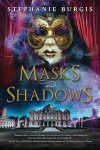
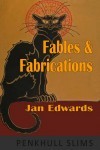
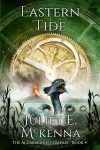 Yes, women do write excellent fantasy – and science fiction too! April has been an excellent month for varied and inspiring contributions on the SFF Guest Blog from Jessica Rydill, Jan Edwards, Freda Warrington, Stephanie Burgis and Juliet E. McKenna.
Yes, women do write excellent fantasy – and science fiction too! April has been an excellent month for varied and inspiring contributions on the SFF Guest Blog from Jessica Rydill, Jan Edwards, Freda Warrington, Stephanie Burgis and Juliet E. McKenna.

And now May is shaping up to be equally exciting with guest bloggers Jenny Barber, Kari Sperring, Liz Williams, Justina Robson and Joanne Hall. The next post will be up on May 2nd.
April 25, 2016
Juliet E. McKenna on Nobody Knew She Was There

I’m delighted to welcome fantasy author Juliet E. McKenna to the Guest Blog this week with some highly relevant and thought-provoking observations on the realities of being a mid-list author today – especially a female mid-lister.
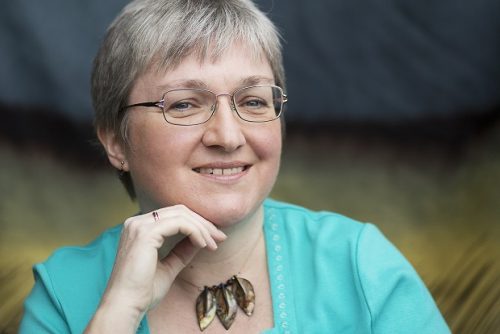
The Lady Vanishes. Why That Happens and How She Can Reappear.
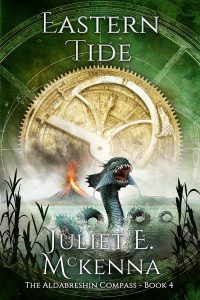
Any author will recognise the conversation I once had with a mortgage advisor. So, he asks, what will I earn next year? That depends on how many books I sell, say I. He looks blank, so I explain about advances and royalties and all the rest of it. So, he asks tentatively, you get paid however-many-pence-it-was-then for each book sold now that those titles have earned out? That’s right. How long for? For as long as the book’s in print. How long’s that going to be? That depends how well it sells. Some books are still selling well after fifty years. Others go out of print in under five. At this point, he gave up and agreed we would calculate the mortgage sums only using my husband’s salary.
That was over a decade ago and these days, physical books go out of print faster than ever. Bookshops simply don’t carry authors’ backlists any more, not to the extent they once did. This is thanks to publishers changing their terms for books over 18 months old from ‘sale or return’ to ‘firm sale only’ from 2008 onwards. From the publisher’s point of view, having to haul unsold books back to their warehouses and process credit notes, stock records etc, was a significant cost which they felt they could trim. Booksellers responded by simply declining to buy backlist books in the first place, if they couldn’t return them for credit if they needed to.
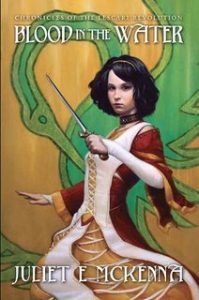 No one seems to have thought much about the individual author, or the reader, come to that. Because a fan can’t buy a book that’s not on the shop shelf and no, not all those potential sales went to Amazon. I saw my backlist sales plummet from earning me over £3000 a year to under £300 over two years. And no one has cracked the discoverability problem for books online. Nothing as yet replicates the shelf-browsing that was always crucial for a writer to draw in new readers. People shop online for books they already know about, first and foremost.
No one seems to have thought much about the individual author, or the reader, come to that. Because a fan can’t buy a book that’s not on the shop shelf and no, not all those potential sales went to Amazon. I saw my backlist sales plummet from earning me over £3000 a year to under £300 over two years. And no one has cracked the discoverability problem for books online. Nothing as yet replicates the shelf-browsing that was always crucial for a writer to draw in new readers. People shop online for books they already know about, first and foremost.
What happens when a book’s not selling? It goes out of print all the sooner, as happened with my first nine titles, which up till then had been selling nicely and earning money for all concerned. Obviously, this is a problem for all authors, male or female. However other changes in bookselling meant this combined with other unintended consequences to hit women writers particularly hard. Deep discounting and front of store promotion is persistently skewed towards male authors. But that’s what sells, the bookshops protest. Are you surprised, women authors challenge them, with frustration and increasing exhaustion, when those particular titles are the first thing buyers see walking in and you’re offering them cheaper than our books at the back of the shop? Have you ever heard the term “self-fulfilling prophecy”?
And the impact goes beyond those immediate lost sales. Any author whose sales figures don’t make the grade over six or twelve months won’t get another publishing contract. When the sales dice are loaded against women, then disproportionately more of them will end up culled. So if you’ve been wondering what happened to that particular writer whose books you really enjoyed but who just vanished from sight, these are some of the reasons which have nothing to do with the actual writing and which the author has no influence over.
So is that it? Thankfully, no, not nowadays. Unsurprisingly, women writers have been at the forefront of reclaiming rights over their early books and re-issuing them as ebooks, sometimes alongside print-on-demand. They’re also independently publishing new fiction as an alternative to the dispiriting process of submitting perfectly good books to agents and publishers who reject them, unread, on the basis of poor previous sales figures.
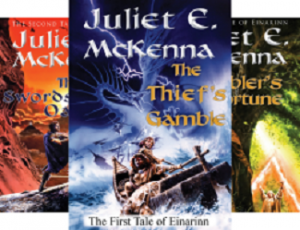
Not that this independent publishing is a quick, easy or indeed cheap process. Firstly, the authors have to get their rights back, and some publishers’ legal departments have come up with amazingly creative interpretations of contractual sub-sub-clauses in order to cling on to ebook rights. Others will cheerfully relinquish the latter books in a series but refuse to give up control of the first volume, relying on reversion agreements written before the days of ebooks and print on demand. Some of the tales of sharp practise have to be heard to be believed, and not every author is willing or able to go toe to toe with a corporate lawyer.
Then there’s actually creating the ebook. Even as recently as ten years ago, a draft might be written on a computer but the rest of the process from copyediting through to page proofing and typesetting happened using hard copy and incompatible systems. Authors usually end up sacrificing a copy of the finished book and scanning it with OCR to get a digital copy of their final text. Then that has to be checked and proofread, before it can be formatted for different ebook readers/software and that’s before all the rigmarole of uploading it to various online platforms. And oh, what about the cover art? Maps? Other illustrations? Because the original publisher will still have the rights to all that sort of material under a separate agreement with the artist or designer.
There’s a certain amount a tech savvy author can do for herself but sooner or later, there’ll be the need and most likely the price to be paid for someone else’s expertise. Even more so with original fiction which will need input from experienced, fresh eyes when the author’s reached the “can’t see the wood for the trees” stage. That means finding someone who knows what they’re doing for structural through to copy editing, and then proofreading, if the author’s going to put their name on a book that equals a big house’s professional standards. The costs for setting up print-on-demand for physical books means further investment of time and, cash.
Increasingly though, authors (male and female) are finding they don’t have to go it alone. Author co-operatives and small presses can and do offer a range of helping hands, often willing to trade skills and time with the writer rather than cash. Keen fans increasingly find new ways to engage with authors online even when they can’t find their books on the shelf. Publishers, who are not fools after all, keep a keen eye on such developments.
A writers’ shelf-life-and-death is no longer what it once was and that’s a very good thing for authors and readers alike.
Juliet E McKenna is a British fantasy author. Her debut, The Thief’s Gamble, appeared in 1999 followed by 14 further novels. She also writes diverse shorter fiction, reviews for web and print magazines, teaches and comments on book trade issues. Currently exploring new opportunities in digital publishing, she’s re-issuing her backlist in association with Wizard’s Tower Press. This week sees the ebook publication of Eastern Tide, final volume of The Aldabreshin Compass. Find out more at www.julietemckenna.com
For more on the challenges of ebooking a backlist, see three related posts starting with “Put out your backlist as ebooks? Oh, it’s easy!” A few thoughts on that…
For more on gender bias in bookstore promotions, see Waterstones & Gender Equality. The good, the bad & the business case for doing better.
April 18, 2016
Stephanie Burgis on Nobody Knew She was There

Author Stephanie Burgis is the guest blogger this week and it’s fascinating to learn what inspired her to become a fantasy writer – and how Joseph Haydn and the world of eighteenth century opera appear in her latest novel: Masks and Shadows.
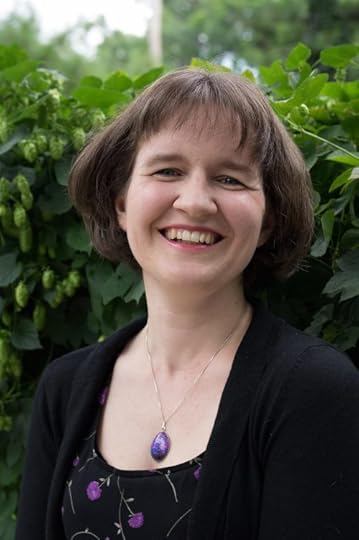
Guest Blog by Stephanie Burgis
I still remember the first moment I knew I wanted to be a fantasy writer.
I was about to turn fourteen, and I was in the middle of reading Emma Bull’s War for the Oaks. Ever since I’d started reading that book, I’d felt a shivering resonance running up and down my body. The book had a fabulous heroine, of course, but what absolutely shook through me was the fact that it showed magic – creepy, beautiful magic – happening in a real city. (Minneapolis, Minnesota.) Phoukas, faerie queens, and more fantastical creatures were walking around in a real city, making use of actual landmarks in their magical battles.
It was the first time I’d ever read that mix of the real and the magical. Of course, I’d always loved reading high fantasy novels (and I still do). Some of my favorite books in the world, at that point, were The Lord of the Rings, Robin McKinley’s Beauty and Patricia McKillip’s The Changeling Sea. And I’d known since I was seven that I wanted to be a writer. But it felt like a lightning-bolt, as I read War for the Oaks, to finally have the realization hit me: This is what I want to write. I want to be a fantasy writer!
I don’t write contemporary urban fantasy, like War for the Oaks. But that combination of real, true elements with magical wonder is always there in what I write. My new novel, Masks and Shadows – my first fantasy novel for adults, after an earlier Regency fantasy trilogy for younger readers – is a historical fantasy set at the Hungarian palace of Eszterháza in 1779. The drama (opera, alchemy, forbidden romance!) all circles around the opera house, where composer Joseph Haydn was the Kapellmeister, creating beautiful music for Prince Nikolaus Esterházy and the royal court. And in that court, Prince Nikolaus’s wife is forced to live in the shadows while his beautiful young mistress reigns as his public consort.
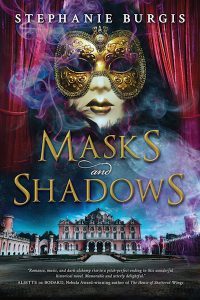
All of that is real history. I worked hard to get every concrete detail of late-eighteenth-century life at Eszterháza right, not just for the royals and aristocrats who ruled it all but for the maidservants, the opera singers, and the soldiers, all of whom play important roles in the novel. (We get to see the palace from all of their perspectives, too.) But then I added secret societies and alchemy. I added elementals and dark magic (as well as a bit of romance between a superstar castrato singer and the very proper sister of Prince Nikolaus’s mistress). I took the real opera house at Eszterháza and tossed dark magic into it.
And it’s that combination – when magic invades the real and true – that gives me shivers down the spine, every time.
I write in hopes of giving readers those delicious shivers of resonance, too. 
April 16, 2016
Stephanie Burgis on Nobody Knew She was There

I’m very pleased to welcome Stephanie Burgis as the next contributor (18.04.16) to the blog; Stephanie’s latest novel is published on 20.04.16 in the UK and she shares some insights into what inspired her to write her new historical fantasy ‘Masks and Shadows’.

April 11, 2016
Guest Blog for Nobody Knew She Was There by Freda Warrington.

Nobody Knew She Was There…
I’m delighted to welcome award-winning author Freda Warrington this week to the Guest Blog.
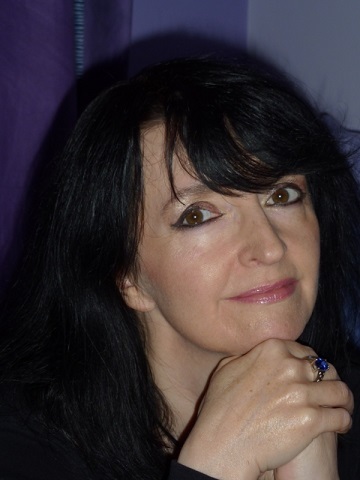
The Le Guin Equation
There’s been much discussion lately about the visibility, or should that be the invisibility, of women writers within the SFF genre. Well, with millions of titles now on Amazon, it’s difficult for any author to be visible, male or female, so I don’t want to dwell too long on that aspect. However…
Fact is, it’s a recurring source of exasperation that female authors in general receive only half the critical attention of their male counterparts, and in SFF as little as one tenth. To redress the imbalance, we produce long lists of great female authors, and we think the point has been made – but no. Every couple of years, we notice that male authors are getting the lion’s share of attention, and that people are still saying, “But women don’t write SFF!” So we have to go through it all again. And again. And again.
Occasionally, when a female author receives plaudits, this seems to cause a flurry of panic amid some (let’s hope a minority) of male SFF writers and readers. “Oh no, the girls are in our playground and they’ve got our ball! This must be stopped!”
The depressing truth is that, throughout history, anything women do is automatically devalued, and everything men do is automatically *more important*. In every field – science, art, literature, maths, music, history itself – women have been active, only to have their contribution scribbled out, elided and forgotten. And many of us – dare I venture, 50 per cent of the population? – are tired, tired, tired. Wake up, world! Black, white, tall, short, gay, straight, male, female, other – as long as we’ve got a brain and a means to put words on a computer screen, NOTHING ELSE MATTERS. Just the words.
While I don’t want to spend too long on this, I started here because it morphs into my main question: In what manner is it possible to write about male and female characters and their roles in a fantasy setting?
Here’s the thing. As a young teen in the 1970s, I was oblivious to any perceived sexism within the world of SFF literature. I read Tolkien, Michael Moorcock, Alan Garner, Peter Beagle; I read Andre Norton, Ursula Le Guin, Tanith Lee, Joy Chant, Anne McCaffrey. To me, an author was an author – a remote, elevated creature like a kind of deity who created whole magical worlds with words. And I wanted to join in.
 So I did. No one told me I could, and no one told me I couldn’t, either. I just wrote, and lived in hope, and obeyed the Writers’ and Artists’ Yearbook, and eventually my dream came true. In 1986, Hodder & Stoughton (NEL) published my first fantasy novel, a weird sword n’ sorcery quest called A Blackbird in Silver. It did rather well. Apparently I could write a tale worth publishing! Several tales, even!
So I did. No one told me I could, and no one told me I couldn’t, either. I just wrote, and lived in hope, and obeyed the Writers’ and Artists’ Yearbook, and eventually my dream came true. In 1986, Hodder & Stoughton (NEL) published my first fantasy novel, a weird sword n’ sorcery quest called A Blackbird in Silver. It did rather well. Apparently I could write a tale worth publishing! Several tales, even!
Ignorance is bliss. We thought that the equality battle was won in the 1970s. Previously, in my childhood, sexism was always around, subtly undermining us. Small boys in the playground would declare with absolute confidence, “Boys are better than girls!” Why are they better? I would ask myself, resentful and diminished but lacking words to refute this plain injustice. Enid Blyton wrote of girls adventuring in the Mallory Towers books – yet in one of the Famous Five series, a main character is told she can’t join some night-time quest because she’s a girl. And this passes unchallenged (except by me, a furious nine-year-old reader!).
Such nagging problems in fiction kept cropping up, and they stuck in my head. What’s okay for boys to be shown doing, what’s acceptable for girls? Why? An historical novel about the Vikings (title forgotten) obsessed and perturbed me. I was about 14 and in love with the young hero, Sven. But when he got his sweetheart into bed – a scene I’d anticipated with breathless excitement – she reacted with shuddering horror, as if he’d raped her. Yet Sven had had no intention of rape – the encounter seemed to be one of mutual desire and love at the start – but SHE had hated it.
And that was NOT what I had wanted to read.
I wanted to read about mutual pleasure and joy, I wanted the women to have as much fun as the men, I did not want the men to be selfish pigs, I wanted equality and respect and shared adventure. But too often, in fiction, I was not finding it. Not even from female authors.
I felt hurt on some deep, impressionable level. Yes, feminism was happening, and yet… All around me, the real world seemed to be mirrored by the fictional one. Men were powerful, macho, misogynistic, entitled. Women were submissive. They gave, men took. Sex was a matter of suffering and sacrifice that the female endured in order to placate or keep the man she “loved.”
And my very young inner self felt betrayed. I would read such scenes with inarticulate dismay. If I’d had the inner resources to question this imbalance, I would have been asking. “WTF? What the actual f*ck? Surely we don’t have to accept that life is this cruel and unfair?”
Yes, I know that in real life exploitation and violence happens, disappointment happens, both then and now. But. The whole reason I began writing was so that I could have the stories that I wanted to read! If I loved a book, but the narrative didn’t go the way I hoped – darn it, I would create something that matched my own vision instead. My version of “Sven” would not be a testosterone-fevered pig, nor would his sweetheart be a trembling, sobbing victim of his lust. My male characters would behave with respect, my females would have a damned good time. Realistic? Yes, no, yes, no. Possibly not always, but it could be. Bottom line, this was my world, so I was going to write it my way!
A Blackbird in Silver – not the first fantasy novel I’d started by any means, but the first I actually finished – began while I was still at school. It starts with three mis-matched warriors setting off to battle a dread Serpent that’s about to destroy the world. Prince Ashurek is notorious as the sometime leader of Gorethria’s genocidal army. Estarinel is an apprehensive pacifist, torn from his rural idyll. Medrian is a tight-lipped woman of mystery. Now, should I have the two men saying, “Well, you can’t come, we’re not taking a woman with us.”?
What sort of world am I creating? One we think we know, in which men go to war and women wait around to be raped or rescued? Or one where sexism is simply not an issue at all?
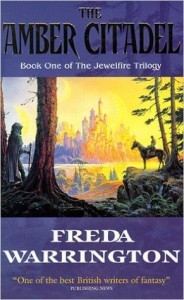 I went for the latter. Imagine: perhaps humans on my planet are more grown-up. Perhaps male aggression/ testosterone levels are not as high, and perhaps women have control over their own fertility – they don’t fall pregnant unless or until they intend to. Yes, the people in my Blackbird world fight and argue and get into horrible situations and confront magic and monsters and crazy sorcerers and demons and torturers and zombies and manipulative supernatural beings, all of that and more. But not gender battles. I never spell out why gender is not an issue in (most) of my fantasy novels, but that’s the world I decided to create.
I went for the latter. Imagine: perhaps humans on my planet are more grown-up. Perhaps male aggression/ testosterone levels are not as high, and perhaps women have control over their own fertility – they don’t fall pregnant unless or until they intend to. Yes, the people in my Blackbird world fight and argue and get into horrible situations and confront magic and monsters and crazy sorcerers and demons and torturers and zombies and manipulative supernatural beings, all of that and more. But not gender battles. I never spell out why gender is not an issue in (most) of my fantasy novels, but that’s the world I decided to create.
I’m not saying that I think gender inequality isn’t a perfectly fine theme to tackle. Of course it is, and it should be tackled and challenged, from all sorts of different angles. It was more that I did not want the issue muddying the waters of my pure Blackbird universe. Instead, let’s see the sexes relating to each other without all that baggage. In later series, I approached things differently. For example, in The Amber Citadel, it’s explicitly shown that the female characters use contraceptive methods, so they can get through the story without ending up – dammit – pregnant!
In The Dark Blood of Poppies (third in my Blood Wine series of gothic vampire romances), the character of Lilith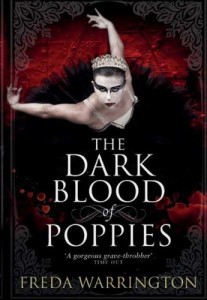 is explored. A demon from Jewish mythology, Lilith embodies everything that women are not meant to be, everything that makes us (in male and/ or religious eyes) depraved, threatening, evil. Throughout the story, my vampire characters Karl, Charlotte and Violette unwrap all the layers of Lilith and, through her, discover the unspoken history of how women came to be scapegoats, unfairly blamed and demonized for all the world’s ills. (This knowledge may be more in the mainstream now, but when I wrote the book in the early 1990s, it wasn’t).
is explored. A demon from Jewish mythology, Lilith embodies everything that women are not meant to be, everything that makes us (in male and/ or religious eyes) depraved, threatening, evil. Throughout the story, my vampire characters Karl, Charlotte and Violette unwrap all the layers of Lilith and, through her, discover the unspoken history of how women came to be scapegoats, unfairly blamed and demonized for all the world’s ills. (This knowledge may be more in the mainstream now, but when I wrote the book in the early 1990s, it wasn’t).
Societies of macho men and oppressed women – even if the oppressed come out swinging swords and flaying misogynistic butt in revenge – never were for me.
At college in the 1970s, I thought sexism was over. We had equality laws at last, and there were exactly 50/ 50 males and females on my college course. Mix of nationalities. Even being gay was fine with us. Apart from the occasional outbreak of sexist jokes, I recall very little sexism, and the female students were certainly under no pressure to flounce about like Page 3 girls. There was some pairing off, but we were all still mates. We thought the modern world was here to stay.
Yet here we are, forty years later, having the same arguments! There’s been a surge of paranormal urban fantasy in which superwomen crush evil like martial arts masters – and that’s fine, of course I like to see women kick ass, but physical strength is not the only way for women to be as “good” as men. The surge of “grimdark” epic fantasy is wildly popular at the moment, but personally, I don’t welcome the trend. However smart and well-crafted, there’s something retrograde about this appetite for simpler, more violent times that I find depressing. In these scenarios, things are dark and bloody and oh so brutal, especially for the female characters – because that’s realistic, innit?
Or is it?
In many ways, things have regressed. We live in a strange world that seems to operate on different levels: feminism and equality laws have got stronger, but the backlash seems stronger too. Women’s rights are under threat from every direction: from religious extremism, from societal pressure, the media, online porn, name your poison.
Here’s one reality: misogynists are bewailing the threat to their masculinity, objectifying females, trolling us, shamelessly threatening us with violence and death. Here’s another: everyday life, where people are just people, and most of us manage to rub along together in the family, workplace, or science fiction convention while treating each other (not always but mostly) with mutual kindness and respect.
There’s a lot in the world to get scared and angry about, but there truly is a layer of reality where men and women are all just human beings and treat each other as such. Trust me, the happy medium exists. It may not be perfect, but it’s real – so why shouldn’t we write about it?
Kate Elliott writes an excellent guest blog on Tor.com – Writing Women Characters Into Epic Fantasy Without Quotas – reminding us that “realism” in fantasy fiction does not require women to be passive, brutalised victims or sword-wielding warrior maidens. Throughout history, women have taken many and varied roles, owned property, run businesses, held power and armies, made discoveries, everything. There’s evidence of societies where gender roles appear to be on a par. Our fortunes have risen and fallen over the centuries. When social upheavals happen, women’s rights are often the first thing to go – we can never take our hard-won human rights for granted – but that doesn’t mean women never had rights, never had agency.
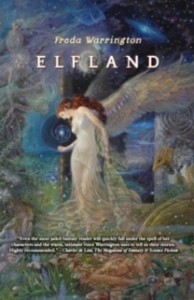 Where does this leave writers, commercially-speaking? True, the fiction market has always been tough. Yet I did manage to make a living as a full-time author for nearly half my career so far. That counts as success of some degree. But the publishing landscape is changing wildly almost by the day, and many moderately successful writers are struggling. We’ve never been more uncertain of the future.
Where does this leave writers, commercially-speaking? True, the fiction market has always been tough. Yet I did manage to make a living as a full-time author for nearly half my career so far. That counts as success of some degree. But the publishing landscape is changing wildly almost by the day, and many moderately successful writers are struggling. We’ve never been more uncertain of the future.
Subtler fantasy or SF doesn’t have to be less commercial – see Station Eleven – but, sadly, probably will be for a few years yet. So is my work forever consigned to the outer darkness because my novels aren’t dominated by embittered swordsmen, muscular psychopaths or stable boy kings? Doomed to obscurity because my heroines don’t Kick Ass like Katniss?
For a long time, I cared about this sort of stuff. Being commercial. Being marketable. Please tell me, I begged everyone, tell me what publishers want to see! But answer came there none because they don’t know. Best-sellers always seem to take them by surprise. So I passed through a long dark tea-time of the soul, fretting until it nearly ate my essential self from the inside out. Eventually, with support from wise friends, the pain fell away and I stopped minding. From now on, I will only write what I want to write, because it’s all I can do.
So, for my sins, I’m working on novel number 22.
Tanith Lee – so deeply missed – was a magnificent writer who had her own publishing struggles in the 1990s, being told by editors that “she wasn’t writing what people want to read.” (No one consulted me, or other members of her massive fanbase!). Those setbacks, however, never stopped her writing. Never. She had her unique visions and pursued them to the end. In her honour, however frustrating this creative business can be at times, I’ll go on writing too, because Tanith was our beacon of inspiration and I’m sworn to carry my own little flame forward into the darkness.
In this clip on TheLiteracySite, Ursula Le Guin offers a Call to Action for Authors. She says never mind the market – we have a responsibility to write about better worlds. The profit motive + the aims of art = not compatible.
I call it the Le Guin Equation.
Freda Warrington is the author of 21 fantasy novels including A Taste of Blood Wine (gothic vampire fantasy from Titan), The Court of the Midnight King (an alternative history of King Richard III), Elfland (winner of Romantic Times BEST FANTASY NOVEL 2009), Dracula the Undead (Winner of the Dracula Society BEST GOTHIC NOVEL 1997), A Blackbird in Silver, and Dark Cathedral. Most novels are still available – you can buy A Blackbird in Silver and its sequels on Kindle, on Audible, or in paperback from Immanion Press. Her latest short story, Ruins and 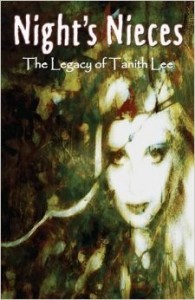 Bright Towers, appears in Night’s Nieces (Immanion Press 2016, ed. Storm Constantine) – an anthology dedicated in loving tribute to the late Tanith Lee by those authors she considered her “nieces.”
Bright Towers, appears in Night’s Nieces (Immanion Press 2016, ed. Storm Constantine) – an anthology dedicated in loving tribute to the late Tanith Lee by those authors she considered her “nieces.”
Full information at www.fredawarrington.com
Facebook: https://www.facebook.com/freda.warrington
April 10, 2016
Freda Warrington on Nobody Knew She Was There

After Jan Edwards’s illuminating post, I’m delighted to introduce the next author to contribute her thoughts on writing and the SFF writer’s life: Freda Warrington. (11.04.16)
And if you missed the first contributor, Jessica Rydill, here is a link to her inaugural post: http://www.sarah-ash.com/nobody-knew-she-was-there
April 4, 2016
Jan Edwards on Nobody Knew She Was There
 Nobody Knew She Was There…
Nobody Knew She Was There… I’m delighted to welcome author and editor Jan Edwards this week to the Guest Blog.
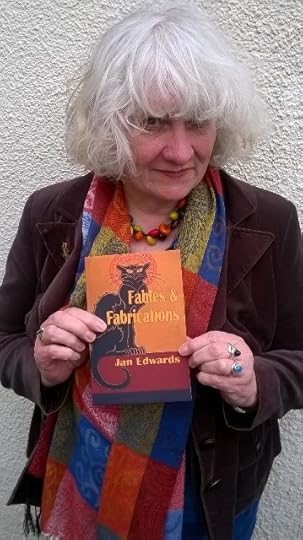
I am Jan Edwards and I write Fantasy fiction.
It is true that I have published two mainstream fiction novels and ghostwritten non-fiction, and my latest novel will be firmly fixed in the crime sector, but when it comes to the short story I am Fantasy all the way. And by Fantasy (capital F) I do mean in its broadest sense. Within the big F I have strayed into most of the various sub-categories over the years: crime, Cthulhu mythos; fairy tales; folklore; horror; myths and legends; paranormal/supernatural; science fiction; Sherlock Holmes; steampunk; swords and sorcery; urban fantasy…
To date more than forty of my short stories have made it into print. Many of the supernatural stories are collected together in Leinster Gardens and Other Subtleties, and a further fourteen collected tales (plus a little poetry) are about to hit the bookshelves as Fables and Fabrications. Yes, I do also write Fantasy novels, and hope to get an urban fantasy series out with a small press quite soon! I have also worn another cap editing anthologies for Alchemy Press and Fox Spirit Books.
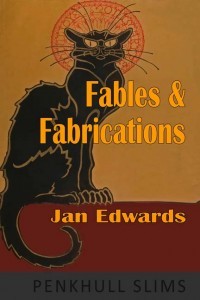
So … I am Jan Edwards and I write Fantasy fiction. Put that way it sounds like some literary confessional, and in some ways it can feel like that when you go to a writing or literary event.
Way back in the mists of the late 1980s I attended a writing weekend at Southampton Uni (the event later became Winchester Writers’ Conference) and had booked for the novel writing workshop. The novel writing workshop was heavily oversubscribed and some forty writers had gathered for the morning’s work.
The author leading it – a self-confessed literary author – quite logically began the session by dividing us into ‘genres’.
I, he declared, will take the literary writers. Will the historic go to the right hand corner and the romantic and womens’ fiction writers the left. Now – what do we have left?
The remainder of the herd huddled in the centre of the room mumbled replies of fantasy/crime/horror/sf.
Oh, he sneered. The weirdos. Caroline (points at well-known fiction editor) you know about those sort of things. You deal with them. Amazingly he did survive, and the Weirdo’s Workshop was born, and went on as a functional writing group across three counties for almost ten years afterwards. In fact I will be attending Bristol Crimefest with one of that group, crime writer Debbie Bennett, in May this year.
It would be good to think that such snobbery has changed since that time. Sadly it has not to any great extent. It is something that perhaps we are so used to hearing from the high-flown towers of heritage publishing houses that we barely notice it. Science fiction is rebranded as futuristic, Fantasy becomes magic realism. Horror so often lurks beneath the euphemisms of supernatural thriller or dark/gritty crime.
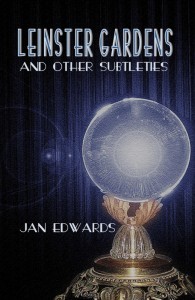
The mainstream find it hard to own up to a sneaking regard for our fantastical tales and seek to justify their interest with cute tags. But the hardening of lines between our beleaguered ranks is something I find a lot harder to understand. I have heard horror buffs are heard to refer to traditional fantasy as ‘pixie-shit’ and fantasy authors referring to the horror crowd as ‘satanists’ (in the derogatory sense). I have heard paranormal romance being derided by some on both sides as ‘beastie-porn’.
We are all writing Fantasy, with than all-important capital F and we should (IMHO) be reading with more catholic (small c) tastes. This cutting and dicing of Fantasy into increasingly blinkered back alleys does us all a disservice. Especially for those of us who relish the freedom of writing the story that wants to be written and not those we are expected to write.
Which brings me neatly round to that tricky question of selling fiction.
We writers are always being told that to gain our market share we should carve ourselves a niche in our particular field. My own work crosses a lot of genre boundaries which I personally prefer. I prefer to write across the board with whatever takes my fancy, but in doing so I am aware that I could be shooting myself in the marketing foot. In the past few months I have had four short stories published:
‘Jamesian Conundrum’, T he Mammoth Book of the Adventures of Moriarty ( Sherlock Holmes).
‘The Decks Below’, Terror Tales of the Ocean (steampunk/folklore/horror).
‘Bone Wary’, Tales From The Lake: vol 2 (horror).
‘Shaman Red’.Winter Tales, Fox Spirit Books (folktale /urban fantasy).
It has never mattered to me what particular sub-folder I will find a writer in because we are all writing to that sense of wonder beyond the mundane and the everyday. That capital F says it all.
But we are told it matters to the publicists and commissioners of fiction because they need to target their audience. Writing well enough for publication is tough enough without having to consider marketing before you even set down a single word.
Then you add the male-female issue into that maelstrom and it can and does become quite toxic. There have been several ‘kerfuffles’ in the fantasy community in recent years over gender parity (or not) in the publishing field. In theory gender should not matter, only the quality of the prose, yet this is a banner that appears to both divide and unite in very public and highly acrimonious debates.
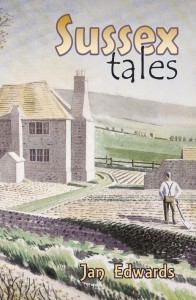 In the anthologies edited by myself and Jenny Barber for both Alchemy Press and Fox Spirit Books we chose on quality of writing and were fortunate never to have needed to consider gender parity because the male to female divide was always around the 50/50 mark; give or take.
In the anthologies edited by myself and Jenny Barber for both Alchemy Press and Fox Spirit Books we chose on quality of writing and were fortunate never to have needed to consider gender parity because the male to female divide was always around the 50/50 mark; give or take.
Having waved the gender equality laws in earnest in my daytime career back in the 1980s, it is never far from my mind and I can understand why this is an issue. And, having worked in bookselling for many years, I know how the perceptions of gender can influence some readers.
These perceptions are wrong at any level but they are changing, albeit at glacial speed. This change is not helped when lists of the ‘best’ genre film/book or ‘most influential’ or ‘top ten’ genre authors are issued and, time after time, fail to include more than a token number of female writers; or on some occasions none at all. The list makers are invariably men who, it must be said in the name of fairness, are giving their personal opinion based on their own reading habits. But there can be no doubt that the perception that male authors will always rise as the cream of the genre pinta thrives on the existence of these very personal polls.
Academe has had similar bias when the literary canon has traditionally listed an all-male casting. There have been more women included since the 1960s, but the debate still rages over what the canon should represent and how far back into antiquity should it stretch. Shakespeare compared with Aphra Benn? Or Homer to Sappho?
Balancing the gender equality has been a long fight across centuries.
The genre war is possibly a far more recent development and not something I have looked into in depth, perhaps a subject for another time. I began this blog by mentioning the thorny subject of marketing, outlining some of the problems I can see in how to promote a varied output in the current market, and will be the first to admit I have no real answers. But I shall leave you with this final thought.
Shakespeare, the Bard, wrote many a Fantasy. The celebrated children’s author E. Nesbit was a writer of dark and gruesome short fiction and one of my favourite authors of all time, Daphne du Maurier, wrote both the historical staple Jamaica Inn and horror classic The Birds.
Write what makes you happy and write it well, and it will find a market.
Jan Edwards lives in Staffordshire with her husband Peter Coleborn and the obligatory three cats – between the Peaks National Park and the Potteries district. She has a life-long passion for folklore and the supernatural and draws on this for her fiction. She has had numerous stories published in anthologies such as the Mammoth Book of Dracula, Mammoth Book of the Adventures of Moriarty and Terror Tales of the Ocean. Some of her published short stories are reprinted in her collections Leinster Gardens and Other Subtleties and Fables and Fabrications. Jan won a Winchester Slim Volume prize and was short-listed for a BFS Award for Best Short Story. She also edits anthologies for the award winning Alchemy Press and also for Fox Spirit Books. In a previous existence she was a Chairperson for the British Fantasy Society. Other titles by Jan Edwards: Sussex Tales and Winter Downs (Penkhull Press – expected 2016)
For more details on Jan and her fiction visit: http://janedwardsblog.wordpress.com/
March 25, 2016
Nobody Knew She Was There…
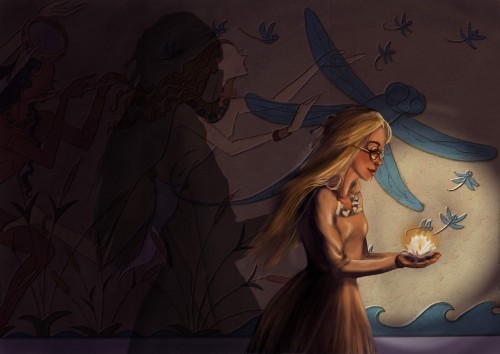
Female Fantasy and Science Fiction writers share their thoughts on the state of the SFF genre today…and what’s most important to them when they pick up their pens.
It’s not easy sustaining a career as a SFF writer today. And, in spite of the visibility of many high-profile and successful female writers, my perception is that it’s not getting any easier.
In spite of the difficulties faced by new writers coming into the genre and experienced writers trying to maintain their visibility, there is a wealth of rewarding, challenging, imaginative and surprising original fiction Out There to be read and enjoyed. But it’s disappointing that so much material has a brief (very brief!) moment in the sun and then sinks without trace, pushed aside by the Next Best Thing.
And that’s why I’m so excited that writers representing many facets of the rich seam that is Fantasy and Science Fiction today have kindly agreed to come here and talk about what they write and why. Or about whatever is currently of interest to them – and you can bet that what they have to say will be well worth your time.
We start on April 28th with Jessica Rydill, and then I’m looking forward to contributions from Jan Edwards, Freda Warrington, Stephanie Burgis and Liz Williams at weekly intervals. And that’s just for starters!
(The artwork is by Marcelle Natisin and depicts Orial from my novel Songspinners in the Undercity of Sulien. If you like what you see, do drop by her website.)



